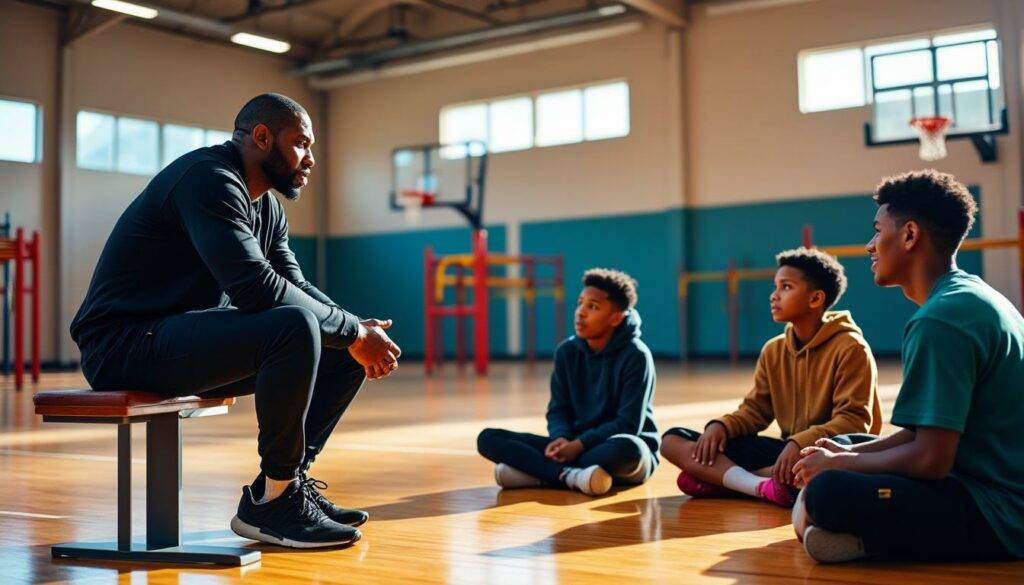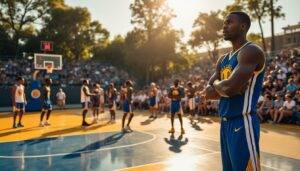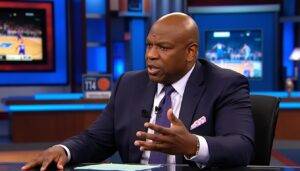Carmelo Anthony discusses the softer nature of today's NBA, stating, 'You're facing grown men with real-life challenges

In 2025, Carmelo Anthony throws a stark light on the evolution of toughness within the NBA, arguing that the current league has softened both physically and culturally. Reflecting on his rookie days in the early 2000s, Melo emphasizes the gritty reality of facing seasoned veterans juggling intense family pressures alongside basketball duties. Today's NBA landscape, while boasting incredible athleticism and skill, lacks the hardened edge that characterized previous eras, reshaping what it means to confront “grown men” on and off the court.
Carmelo Anthony Explains Why Today's NBA Is Softer On And Off The Court
When Carmelo Anthony first entered the league in 2003, he encountered a physically brutal league dominated by players who wore their toughness like armor. These men weren’t just athletes; they were providers and role models, carrying immense responsibility for families and communities—a factor that sharpened their resolve. Melo points out the cultural shift since then, where today's NBA players operate in a softer environment, supported by extensive mental health resources and a relatively younger league demographic.
- Physicality and toughness: The NBA has transitioned from a rugged, contact-heavy style to a more finesse and speed-oriented game with strict foul rules.
- Veteran family responsibilities: Players in the early 2000s balanced intense personal pressures without the mental health support available today.
- Changing team demographics: Average team age has dropped from 27.5 to around 26.04, reducing veteran presence.
- Mental health awareness: Modern players openly address their struggles—once seen as weakness.
- Financial security: Today's athletes enjoy lucrative contracts from brands like Nike, Adidas, and Jordan Brand, creating more comfortable lifestyles.
The Impact Of Younger Teams And Diminished Veteran Mentorship In The NBA
With the league’s average player age declining, teams are increasingly reliant on youthful energy and talent. This shift diminishes the veteran mentorship role that older players traditionally held, a factor Melo highlights as detrimental to rookie development. In his rookie season, it wasn’t uncommon for teams to have average ages nearing 28, providing young players with a tough, guiding hand.
- Rookie assimilation: Hard-nosed veterans shaped rookies with strict guidance and responsibility.
- Pressure handling: Earlier generations learned to cope with high stakes quickly due to relentless veteran challenges.
- Modern reliance on management: Today’s rookies often receive cushioned introductions backed by front office strategies.
- Less veteran dominance: Only a few players like LeBron James and Stephen Curry retain great leadership influence.
- Brand endorsements impact: Partnerships with Under Armour, Puma, and Reebok provide financial comfort but also change players’ priorities.
For those interested in the latest NBA team dynamics and rankings, crash the latest insights on NBA team rankings and witness how age plays into franchise-building strategies.
How Cultural Shifts Influence NBA Player Toughness And Mental Resilience
The culture in the NBA has undergone a profound transformation, not just in rules but in how players perceive mental resilience and vulnerability. Melo stresses that, unlike earlier eras, today's players don't face mental and emotional struggles alone. The stigma surrounding mental health has crumbled, giving players space to seek help and talk openly. While this is progress, it marks a departure from the raw, unyielding mental toughness that once defined the league’s core.
- Mental health resources: Extensive support systems exist now compared to the minimal or absent aid in the 2000s.
- Player openness: Stars now use their platforms to discuss depression, anxiety, and burnout.
- Culture of vulnerability: Once a taboo, now an accepted and healthy part of athlete life.
- Changing player priorities: Focus shifts from pure physical dominance to balance and longevity.
- Impact on game style: Softer plays and adherence to strict foul rules affect on-court toughness.
Explore how these cultural changes align with evolving front office philosophies in NBA front office rankings, reflecting on how team management adapts to the softening of the player experience.
The Evolution Of NBA Big Men Expectations: From Physical Presence To Versatility
Anthony also critiques how the role of traditional big men has shifted in the modern NBA. Where once players dominated the paint with brute strength, today’s centers are expected to shoot threes, handle the ball, and distribute, a change that speaks volumes about the league’s softening physical demands but raising cognitive expectations.
- Old school centers: Focused on rebounding, shot-blocking, and physical dominance.
- Current trends: Big men like Nikola Jokic or Victor Wembanyama stretch the floor with shooting and passing skills.
- Rule changes: Fewer touch fouls allowed on shooters diminish paint defense physicality.
- Impact on toughness: Less physical punishment demands more mental adaptability.
- Brand influence: Athletes endorse gear from Peak, Anta, and Li-Ning, reflecting market shifts toward agility and style.
For a deeper dive into these strategic transformations, check recent commentaries on notable offseason decisions that have affected the league's competitive balance.

